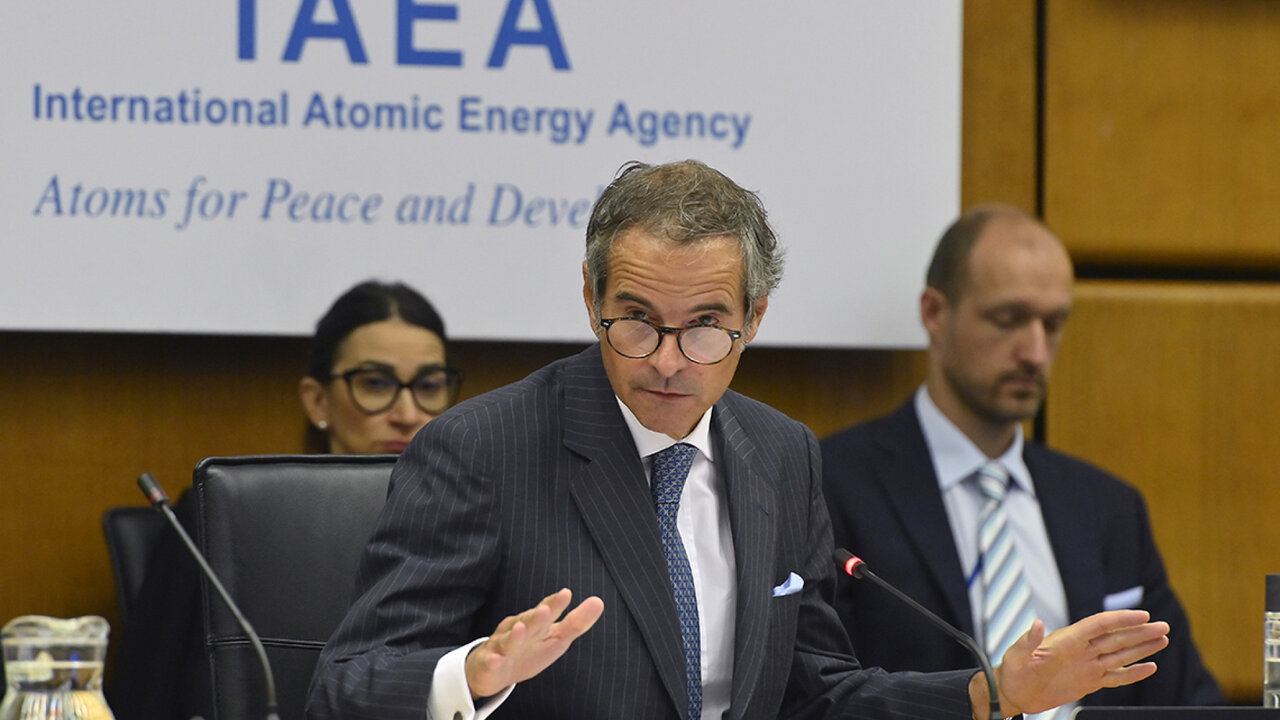Grossi urges Iran to seriously cooperate with IAEA

TEHRAN - The IAEA director general, speaking at a news conference before the IAEA’s Board of Governors in Vienna on Monday, urged Iran to seriously work with the Agency in line with the joint statement made in Tehran on March 4.
Rafael Grossi also claimed that he only is worried about the nuclear issue with Iran, adding there is no connection between the Iran-IAEA cooperation and the current indirect discussions between Iran and the United States as well as the prisoner swap between them.
He used the most recent IAEA report on Iran’s nuclear program to argue that ties between Tehran and the IAEA had not made “much progress” on the unresolved issues.
The joint statement between Iran and the IAEA was intended to be “a gradual process of confidence-building," Grossi said, adding that it was also intended to expand the Agency's tangible and electronic presence in Iran (CCTV cameras).
He continued that the issue of the data captured by the IAEA cameras needed to be addressed.
Grossi added that an agreement between Iran and the IAEA about access to the data and information captured by cameras must be reached, but said that for the time being the two parties are not even close to reaching that point.
When asked about reports that the IAEA was disappointed in its most recent report on Iran’s nuclear program but no resolution had been made against the country, Grossi responded that the IAEA board members should decide “if a resolution is good or bad.”
The IAEA director also addressed the issue of Iran's nuclear program in his introductory statement to the Board of Governors, noting that “as you are aware, the Agency’s JCPOA-related verification and monitoring activities have been seriously affected by Iran’s decision in February 2021 to stop implementing altogether its nuclear-related commitments under the JCPOA. The situation was exacerbated by Iran’s subsequent decision to remove all the Agency’s JCPOA-related surveillance and monitoring equipment.”
“It has been more than two and a half years since Iran stopped provisionally applying its Additional Protocol and, therefore, since it provided updated declarations, and since the Agency was able to conduct complementary access to sites and other locations in Iran,” he added.
Additionally, Grossi stressed, “You also have before you my report on NPT Safeguards Agreement with the Islamic Republic of Iran. I regret that no further progress has been made in implementing the activities set out in the Joint Statement signed in Tehran on 4 March.”
He went on to underscore, “Iran also still needs to provide the Agency with technically credible explanations for the presence of uranium particles of anthropogenic origin at Varamin and Turquzabad and inform the Agency of the current location(s) of related nuclear material and/or of contaminated equipment. It also still needs to resolve the discrepancy in the nuclear material balance evaluation relating to the Uranium Conversion Facility (UCF) and to implement modified Code 3.1.”
He further said, “These outstanding safeguards issues stem from Iran’s obligations under its Comprehensive Safeguards Agreement and need to be resolved for the Agency to be in a position to provide assurance that Iran’s nuclear program is exclusively peaceful.”
Grossi urged Iran to “to work with the Agency in earnest and in a sustained way towards the fulfilment of the commitments contained in the Joint Statement.”
Following the unlawful U.S. unilateral departure from the 2015 nuclear agreement, known as the JCPOA, and the persistent disregard by the E3 countries for the illegal U.S. sanctions on Iran, Iran took certain moves away from the agreement.
Tehran has sworn that when the Western parties lift all of the sanctions imposed on it in accordance with the JCPOA text, it will change direction and completely comply with the agreement.
Leave a Comment